Oh, brother: 12 MLB players who couldn't quite match their Hall of Fame siblings' success
(AUDACY) Lloyd Waner recorded more than 200 hits in a single season four times, was a top-15 MVP candidate four times, finished with a .316 career batting average and is in the Baseball Hall of Fame thanks to the Veterans Committee. And somehow, he's the worse brother of MLB's Waner family. Big brother Paul recorded mor ethan 200 hits eight times, was an MVP winner in 1927, compiled more than 3,000 hits and was inducted into the Hall of Fame 15 years before his younger brother.
Sometimes, that's the case. The genetic lottery was won not once, but twice. Look at players like Phil and Joe Niekro, both 200-win pitchers, though one was clearly superior. How about Gaylord and Jim Perry, both of whom won Cy Young awards throughout their illustrious careers? Though Pedro Martinez was obviously the better sibling, Ramon Martinez was an All-Star and extremely effective pitcher at his peak. And it's not only on the mound, nor is it only in cases of a pair of siblings. All three DiMaggio bros were good to great hitters, and the trio of Felipe, Matty and Jesus Alou could all produce in the outfields of their respective teams.
But sometimes, while one brother hit the jackpot in terms of their baseball skill set, the other brother can't quite put up the same numbers. Becoming a professional baseball player and playing on the biggest stage in the world is an impressive feat, and there's no doubt about that. But when you're playing in the shadow of an all-time great who also happens to be your sibling, your less-than-stellar performance becomes just a bit more magnified.
Let's look at a dozen Baseball Hall of Famers alongside their fairly forgettable sibling counterparts.
All stats retrieved from Baseball Reference unless otherwise noted.
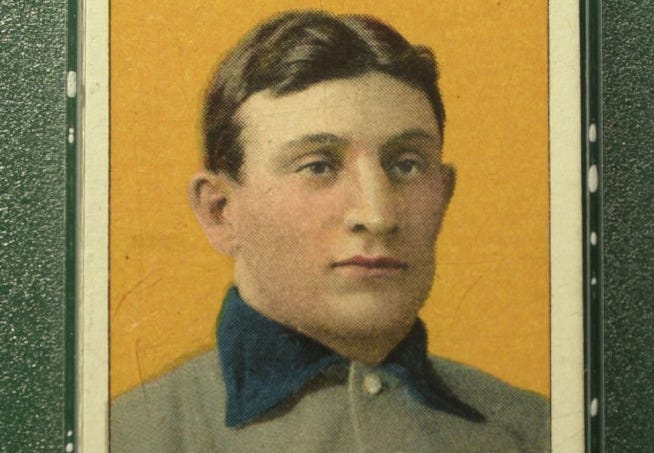
Honus and Butts Wagner
Honus Wagner stats: 3,420 hits, 1,732 RBIs, 1,739 runs, .328/.391/.467, 130.8 WAR
Butts Wagner stats: 59 hits, 34 RBI, 22 R, .226/.279/.307, -1.2 WAR
Albert Wagner didn't get the best draw. If it wasn't enough that his younger brother Honus, who Albert is "generally credited with teaching" the game of baseball as a child, was far superior to him on the field, it's even worse that Albert was known by the nickname "Butts." I'm not sure what that meant back in the late 1800s and at the turn of the century, but he probably wouldn't have enjoyed going around with that moniker in today's world.
Butts only played for one season, in 1898, and wasn't all that great at the plate or in the field. In fact, he made 46 errors in 73 games, giving him an 82.9 fielding percentage and a -1.2 dWAR. In the now-defunct NotGraphs section of FanGraphs, there's even a poem titled "Did I Ever Tell You How Lucky You Are You're Not Butts Wagner?" Harsh.
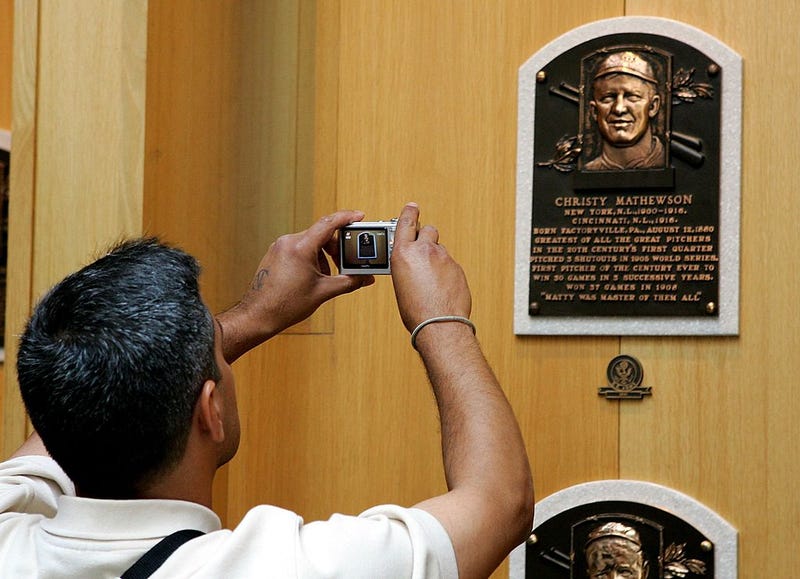
Christy and Henry Mathewson
Christy Mathewson stats: 373-188, 2.13 ERA, 2,507 Ks, 79 SHO, 106.5 WAR
Henry Mathewson stats: 0-1, 4.91 ERA, 2 Ks, -0.3 WAR
Christy Mathewson led all of baseball in strikeout-to-walk ratio not once, not twice but nine times throughout his 17-year career. Though his career 2.96 K/BB figure isn't so impressive when considering today's game — there are 70 other big leaguers who are higher on that career leaderboard — his accuracy and ability to get batters to whiff was second-to-none in his heyday. Mathewson was a true star for the game of baseball, so much so that he was presented as such in a novel called "The Celebrant."
Henry Mathewson, unfortunately, had no novels written about him. He also didn't have a stellar K/BB ratio — in fact, in his two years and 11 innings of pitching, the younger Mathewson brother recorded two strikeouts to 14 walks. And he hit a batter.
It must have been a cool moment for the pair of siblings, however, on September 28, 1906, when Christy fired eight innings without giving up an earned run before Henry came in and pitched one inning to close (h/t Mike Piazzi of SABR). His next outing didn't go as well, seeing as all 14 of his career walks came in that one game.
Both Christy and Henry sadly died young from tuberculosis.
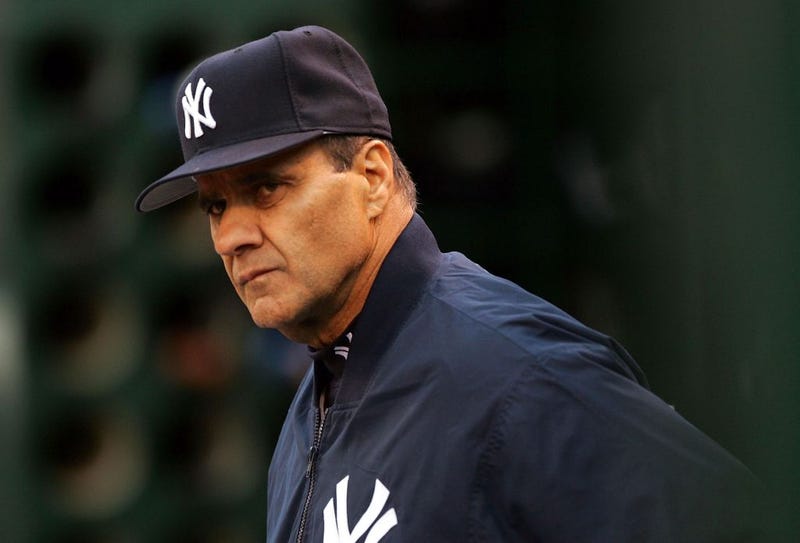
Joe and Frank Torre
Joe Torre stats: 2,340 hits, 252 HRs, 1,185 RBIs, 996 R, .297/.365/.452, 9x All-Star, 1x MVP, 1x batting title, 1x Gold Glove, 57.5 WAR
Frank Torre stats: 404 hits, 13 HRs, 179 RBIs, 150 R, .273/.349/.372
While Joe Torre may not have been inducted into the Hall of Fame due to his playing career, he certainly received consideration. He was on the ballot for 15 years and got 22.2% of the vote in his final shot at eligibility, and he reasonably could have been elected as a player at a later date through the Veterans Committee. Of course, he was eventually inducted via that group -- not as a player but as a manager with well over 2,000 wins and four World Series titles.
Nine years Joe's senior, Frank Torre was a solid if unexceptional hitter, with his best season coming in 1958 (.309/.386/.444 in 372 at-bats). His impact, however, was felt in plenty of ways off the field. His heart transplant in 1996 took place at the same time as Torre's first World Series run with the Yankees and served as an inspirational storyline for the New York sports world. He was also known for helping lead Joe through a traumatic upbringing due to their abusive father, Joseph Sr., for his time working in the sporting goods industry and for serving as a board member of the Baseball Assistance Team (via Richard Goldstein of the New York Times).
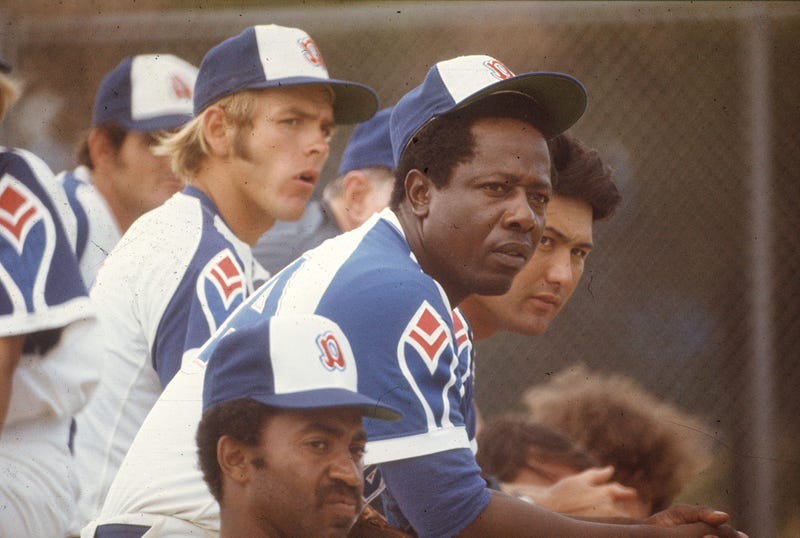
Hank and Tommie Aaron
Hank Aaron stats: 3,771 hits, 755 HRs, 2,297 RBIs, 2,174 R, .305/.374/.555, 25x All-Star, 1x MVP, 3x Gold Glove, 2x batting title, 143.1 WAR
Tommie Aaron stats: 216 hits, 13 HRs, 94 RBIs, 102 R, .229/.292/.327
If you've heard of Tommie Aaron, it's probably because you've been asked about the MLB brother duo with the most home runs as a pair. And yes, it's the Aaron bros, despite the fact that Hank did 98.3% of the work.
It looked as though Tommie would be a force in the major leagues based on his minor league career, however. He batted .290 across eight seasons in Triple-A ball, including his 1964 campaign with the Denver Bears — Phil Niekro and Sandy Alomar were among his teammates — in which he had a team-high 21 homers and scored 103 runs. He also won MVP in 1967 for the Richmond Braves, which eventually led to the creation of the Tommie Aaron Memorial award for the team's best player until the franchise moved to Georgia (via Fred Jeter of the Richmond Free Press).
Of course, with a brother who's perhaps the finest player in league history, it's hard to make much of a name for yourself as a minor league stud.
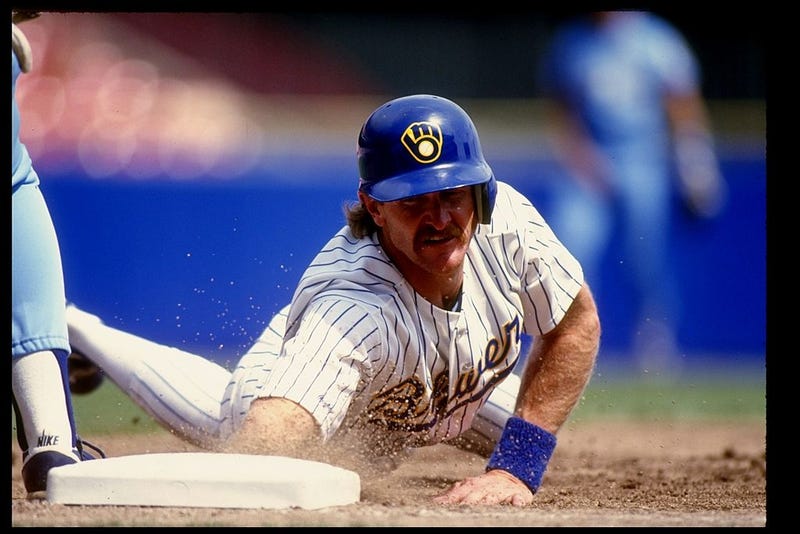
Robin and Larry Yount
Robin Yount stats: 3,142 hits, 251 HRs, 1,406 RBIs, 1,632 R, .285/.342/.430, 3x All-Star, 2x MVP, 1x Gold Glove, 77.3 WAR
Larry Yount stats: 0-0, 0 K, N/A ERA, 0.0 WAR
OK, this is a weird one. In the top of the ninth inning in a 4-1 game, with the Braves leading the Astros, Houston brought in 21-year-old pitcher Larry Yount for his big league debut. Something felt just a bit off for him though, and the only pitches he wound up logging were in warmups.
“I decided to pull myself out of the game and that was that,” Yount said (via MLB.com's Brian McTaggart). “Never in my wildest dreams did I think that would be the end of my career.”
But that's exactly what happened. Jim Ray replaced Yount before he could throw a single pitch, and that would spell the end of his career. And while Robin is in a good number of exclusive and impressive clubs of his own, Larry can proudly say that he's the only pitcher in the game's history to appear in the statistical record books without ever facing a batter.
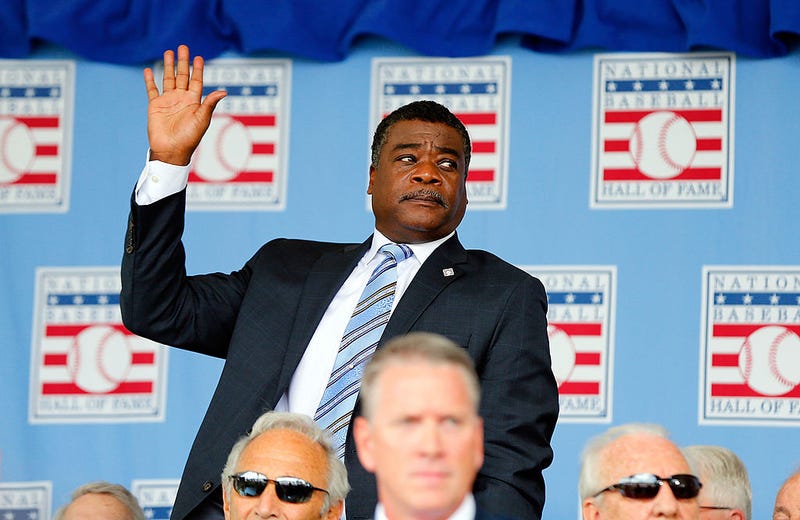
Eddie and Rich Murray
Eddie Murray stats: 3,255 hits, 504 HRs, 1,917 RBIs, 1,627 R, .287/.359/.476, 8x All-Star, 3x Gold Glove, 68.6 WAR
Rich Murray stats: 44 hits, 4 HRs, 25 RBIs, 19 R, .216/.256/.333, -0.9 WAR
Steady Eddie was about as consistent a ballplayer as you'll find. He reached the 3,000-hit and 500-homer plateaus without ever recording more than 190 hits or 35 home runs in a season, but he did put up 15 seasons of at least 140 hits and 20 home runs. Only two batters — just some guys named Hank Aaron (17) and Albert Pujols (16) — have more total seasons with those stats.
There wasn't much time for younger brother Rich Murray to find that sort of consistency, seeing as he only played in the 1980 season and then four games in 1983. Though his minor league numbers were impressive — he slashed .283/.344/.425 across eight seasons in Triple-A ball — he couldn't quite put it together in the show.
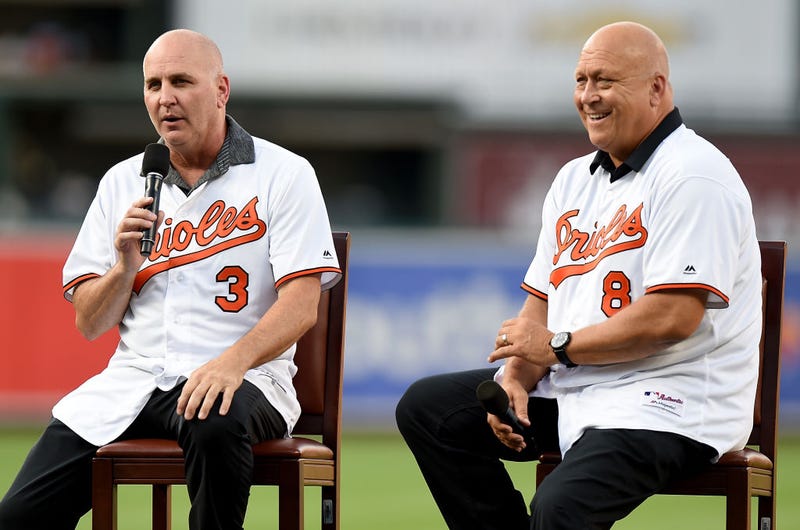
Cal and Billy Ripken
Cal Ripken Jr. stats: 3,184 hits, 431 HRs, 1,695 RBIs, 1,647 R, .276/.340/.447, 19x All-Star, 2x MVP, 2x Gold Glove, 95.9 WAR
Billy Ripken stats: 674 hits, 20 HRs, 229 RBIs, 287 R, .247/.294/.318, 5.9 WAR
To me, Billy Ripken is a recognizable baseball presence. Perhaps it's the fact that "Ripken" is such a household surname in the baseball community. Perhaps it's because I've seen Billy Ripken on my TV screen as an analyst on MLB Network. Perhaps it's because of that incredible 1989 Fleer card.
But statistically, the oft-injured younger Ripken bro who "attacked the game of baseball with reckless abandon and paid the price," was no comparison at all to big brother Cal. If Cal was MLB's ironman, then perhaps Billy was MLB's glass man.
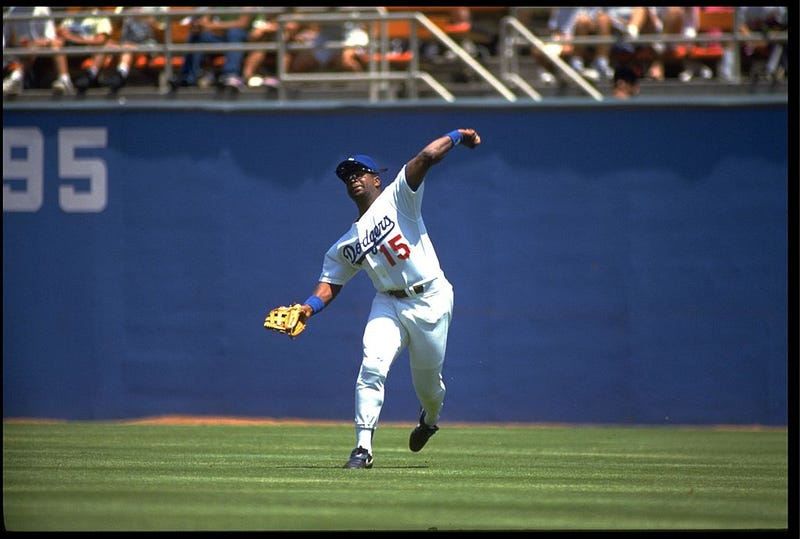
Tony and Chris Gwynn
Tony Gwynn stats: 3,141 hits, 135 HRs, 1,138 RBIs, 1,383 R, .338/.388/.459, 15x All-Star, 5x Gold Glove, 69.2 WAR
Chris Gwynn stats: 263 hits, 17 HRs, 118 RBIs, 119 R, .261/.308/.369, -1.4 WAR
It's not that Chris Gwynn couldn't hit. A .261 career batting average isn't bad at all, and in the season in which he got the most opportunity at the plate, he converted 287 at-bats into 86 hits for a .300 batting average. Again, not too shabby, especially when you consider that he also recorded a .997 fielding percentage in the outfield.
But when your brother's worst single-season batting average was .289 as a rookie, and that was literally the only year that he didn't bat over .300, you're not putting up much of a fight with Chris' numbers. The elder Gwynn — why is it always the older brothers who seem to be the better ones here? — was an unstoppable hitting machine who was destined for Hall of Fame greatness as soon as he stopped on the field.
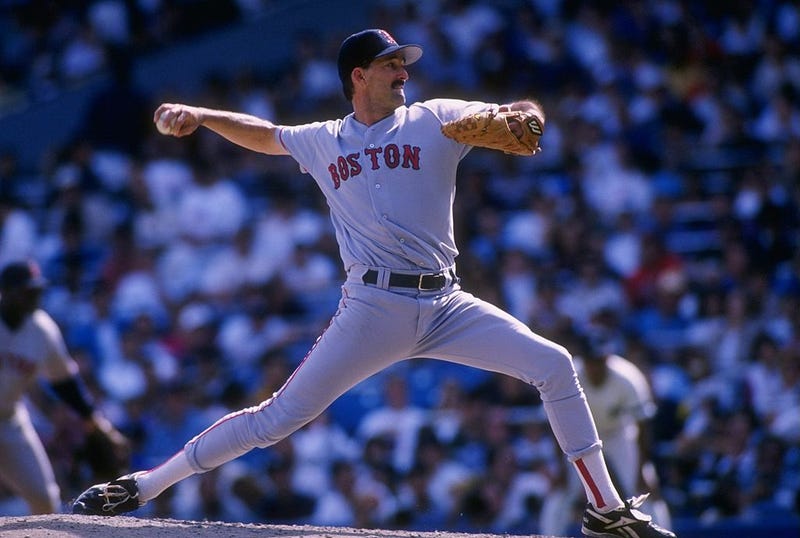
Greg and Mike Maddux
Greg Maddux stats: 335-227, 3.16 ERA, 3,371 Ks, 35 SHO, 8x All-Star, 4x Cy Young, 18x Gold Glove, 106.6 WAR
Mike Maddux stats: 39-27, 4.05 ERA, 564 Ks, 20 SV, 5.6 WAR
Any relief pitcher who pitches 472 games in the big leagues probably sticks around that long for a reason. And that's how long Mike Maddux was able to pitch for, spending time with nine different clubs from 1986 to 2000. It was a long career with some highs, like his two-year stretch with the Padres in which he recorded a 2.42 ERA across 178 1/3 innings, and lows, like his disastrous 10.13 ERA in Seattle before he was released. He's now the pitching coach for the St. Louis Cardinals, where he's found quite a bit of success.
But his achievements will never reach the heights of the younger — finally, a better younger brother! — Greg, who's four years his brother's junior and exponentially more difficult to hit. Maddux's pinpoint control and confidence on the mound reached such high levels where he would literally allow batters to have success against him on purpose in order to gain an advantage on them the next few times around. When you can do that, you've got something working for you.
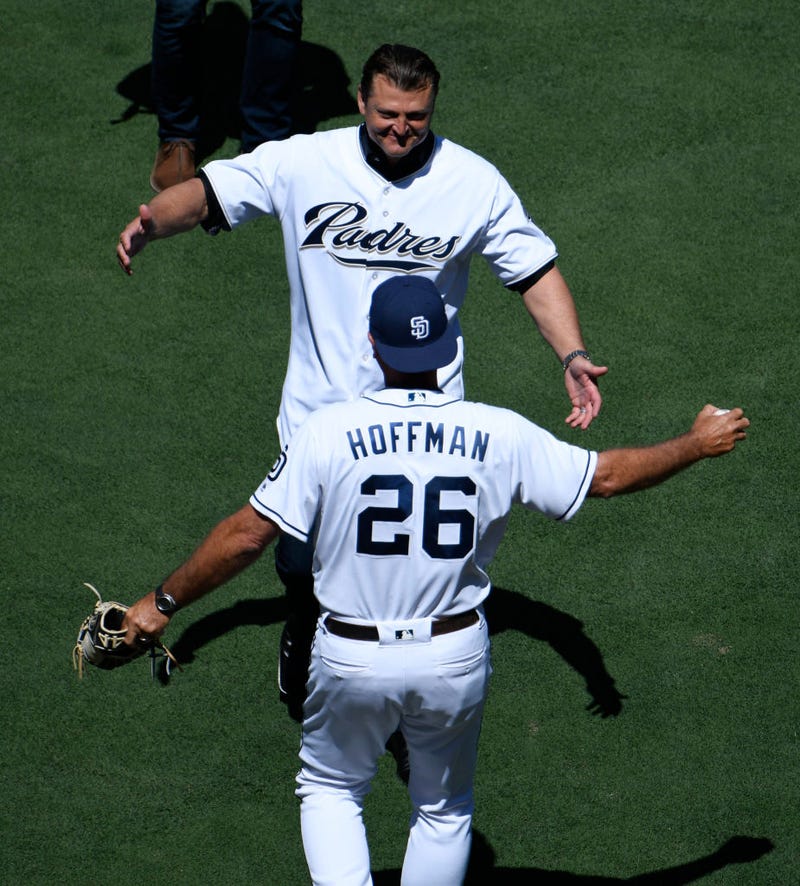
Trevor and Glenn Hoffman
Trevor Hoffman stats: 61-75, 2.87 ERA, 1,133 Ks, 601 SV, 7x All-Star, 28.0 WAR
Glenn Hoffman stats: 524 hits, 23 HRs, 210 RBIs, 247 R, .242/.291/.331, 0.3 WAR
If the Hoffman brothers had to face each other, we're assuming that the younger brother would win the matchup, oh, maybe 99 out of 100 times. Trevor, nine years younger than Glenn, was a lights-out closer whose 601 saves rank only below Mariano Rivera. Over 18 years, batters were held to just a .609 OPS when he was the pitcher ...
... which is nearly the same as the career .623 OPS that Glenn had against every pitcher. Debuting in 1980, Glenn had his best year with a .285 average but could never deliver in a larger role and played his final game in 1989, four seasons before Trevor made his debut.
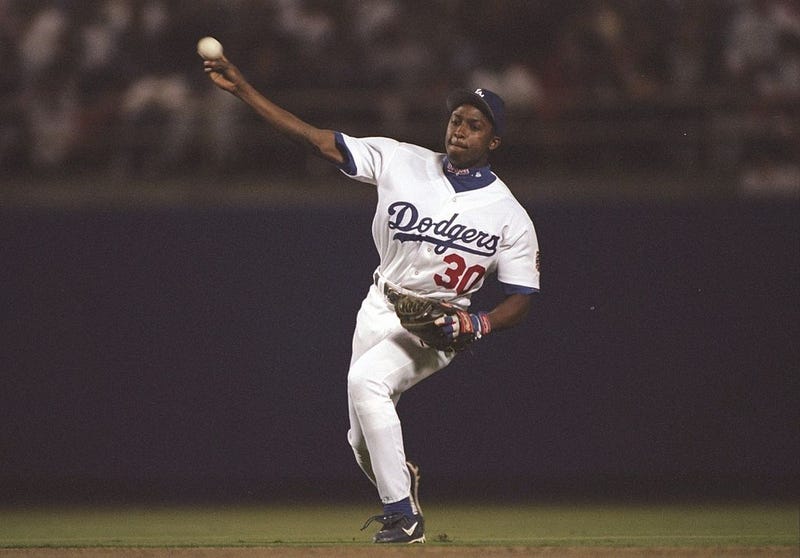
Vladimir and Wilton Guerrero
Vladimir Guerrero stats: 2,590 hits, 449 HRs, 1,496 RBIs, 1,328 R, .318/.379/.553, 9x All-Star, 1x MVP, 59.5 WAR
Wilton Guerrero stats: 473 hits, 11 HRs, 127 RBIs, 197 R, .282/.308/.369, -1.8 WAR
A .282 career average for Wilton, you say? That's not so bad, is it? No, but when you factor in that his on-base percentage was just minimally higher and that he really didn't help out defensively (-2.2 dWAR), it's not hard to see why he couldn't maintain as long a career as his Hall of Fame brother.
Vladimir, who's younger than Wilton, used the free-swinging approach that Wilton used but really made the most out of it, still drawing walks as a fearsome hitter and somehow connecting with his wild swing on pitches that simply weren't meant to be hit. As we have all come to find out very quickly, he's passed that skill on to his son (and Wilton's nephew).
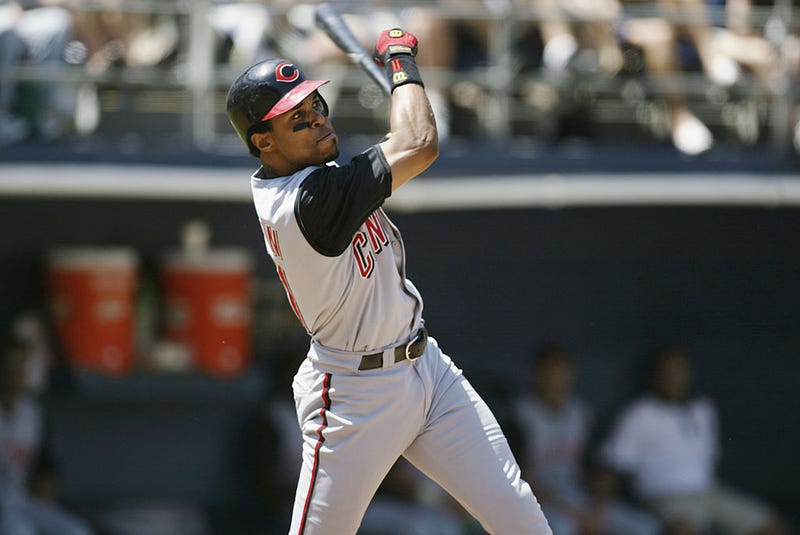
Barry and Stephen Larkin
Barry Larkin stats: 2,340 hits, 198 HRs, 960 RBIs, 1,329 R, .295/.371/.444, 12x All-Star, 1x MVP, 3x Gold Glove, 70.5 WAR
Stephen Larkin stats: 1 hit, 0 HRs, 0 RBIs, 0 R, .333/.333/.333, 0.0 WAR
Yep. Stephen Larkin played in one game. He recorded one hit. And that was it. The coolest thing about it, however, was that he shared the infield with not only brother Barry but also with brothers Bret and Aaron Boone. Two pairs of brothers, all in the same infield, all in the same game. Take that one to your next baseball trivia party!
LISTEN on the Audacy app
Sign up and follow Audacy Sports
Facebook | Twitter | Instagram
